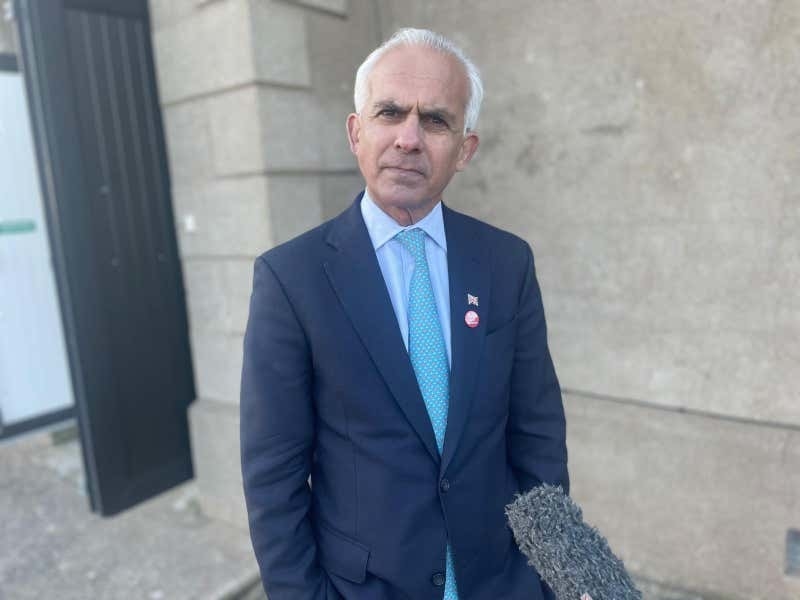The advice was given to a recent Export Club event organised by Jersey Business. Speaking at the event was Clive Broadley, who has spent 47 years in freight forwarding and customs warehousing, and 20 years on the board of the British International Freight Association. Also speaking was David Walwyn, States of Jersey, director of external relations. Jersey Post chief executive Tim Brown chaired the event.
With the UK Brexit negotiations behind schedule and Prime Minister Theresa May struggling to keep her cabinet together on the issue, Jersey is still some way away from knowing what the new customs landscape will look like. The UK business community want frictionless borders, but Mr Broadley warned that if the EU made it too easy for the UK to trade, it would cause a lot of trouble for the EU.
Mr Broadley said it’s certainly in EU and UK interests to retain frictionless borders, but other countries, like Holland, are already preparing for change. They have taken on 900 extra customs officers. He said that Jersey businesses in some ways have an advantage because we already have a customs requirement: ‘I think in terms of those trade lanes, UK-Jersey, not too much will change. The problem comes within the UK, so how are goods going to move into the UK or out of the UK in the first place because of the new barriers. So HMRC will have the ability to work with the Jersey government, as they clearly are. So I think that’s not your issue. The issue is what are we going to do about the tariffs? How are they going to change? What about customs clearance processes in the UK?
‘All those companies that previously have had no need or knowledge of customs clearances or skills in house, suddenly 27 countries are going to become export/import markets for them, so those are the issues and the really big issues are how frictionless the borders are going to be. If trade with the EU stops at the border then the costs involved and the delays involved and the change in the patterns of trading is going to be substantial.’
David Walwyn explained the extensive preparations that the Jersey government has been making, he said the next three months in the run up to the October European Council meeting are critical, but until the deal has been agreed, we have to keep on lobbying. It is hoped that Jersey’s trusted trade system with the UK will continue.
Jersey Post’s Tim Brown said there are already changes underway, which have been Brexit-independent, with a new computerised Customs Declaration System that’s going across the world. This is all around pre-declaring goods and so its use, particularly for the UK will now be hastened. Businesses are going to have to fill in more data and information which in the past hasn’t affected postal goods, but going forward, will as Royal Mail and other postal services adopt the system. Every single item will have to be pre-advised online rather than sending a parcel and then a customs officer physically checking items as they are processed: ‘You are moving to a world where everything is pre-advised, everyone knows what’s in things, for both revenue protection and also security reasons.’ Mr Brown said that the more the system is automated, the quicker it will be but there will be some ‘pain’ as systems are put in place and people adjust.
‘Our concern is around stuff moving off-Island and into the UK hence our strategy, hence why we have a freight company in Portsmouth and customs broker at Heathrow. We will work with the Jersey company and help them operate out of the UK or indeed Europe. So we can move with Jersey businesses wherever they need to be.’
Jersey’s relationship with the EU will change and Clive Broadley says that businesses might want to consider importing less goods through the UK and instead develop their own streams with the EU. Mr Broadley advises Jersey businesses to look at the worst case scenario and work back. Assume we have a hard Brexit and the people trading here will need a much greater knowledge of export and import.
All businesses, including those in the UK, will need to have paperwork in advance going forward, whereas at the moment goods can be invoiced after they have been sent: ‘Where they have an integrated supply within the UK they should really be asking that supply chain, what are you doing about Brexit?
‘How prepared are you for these things and if the supply chain are goods coming out of the EU then that supplier needs to think about it because that tariff suddenly could go from 0 to anything. The WTO tariff runs from 8% to 50%. The EU tariff on cars is 10% on carrots it’s 13% so if you are going to be faced with those kinds of tariffs, what impact does that have on your costs?
‘What happens if goods are going to be slowed up in the supply chain and you are going to have an increase in transport costs, what impact will that have on your goods? So they should be thinking about those things now.’
Mr Walwyn has asked businesses to provide government with feedback and to pose questions via their Let’s Talk Brexit campaign.






